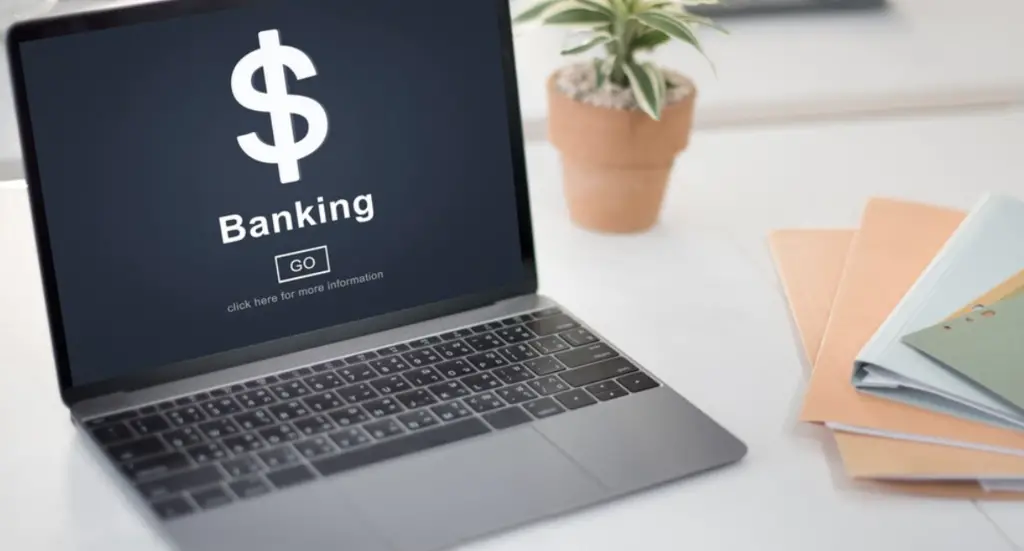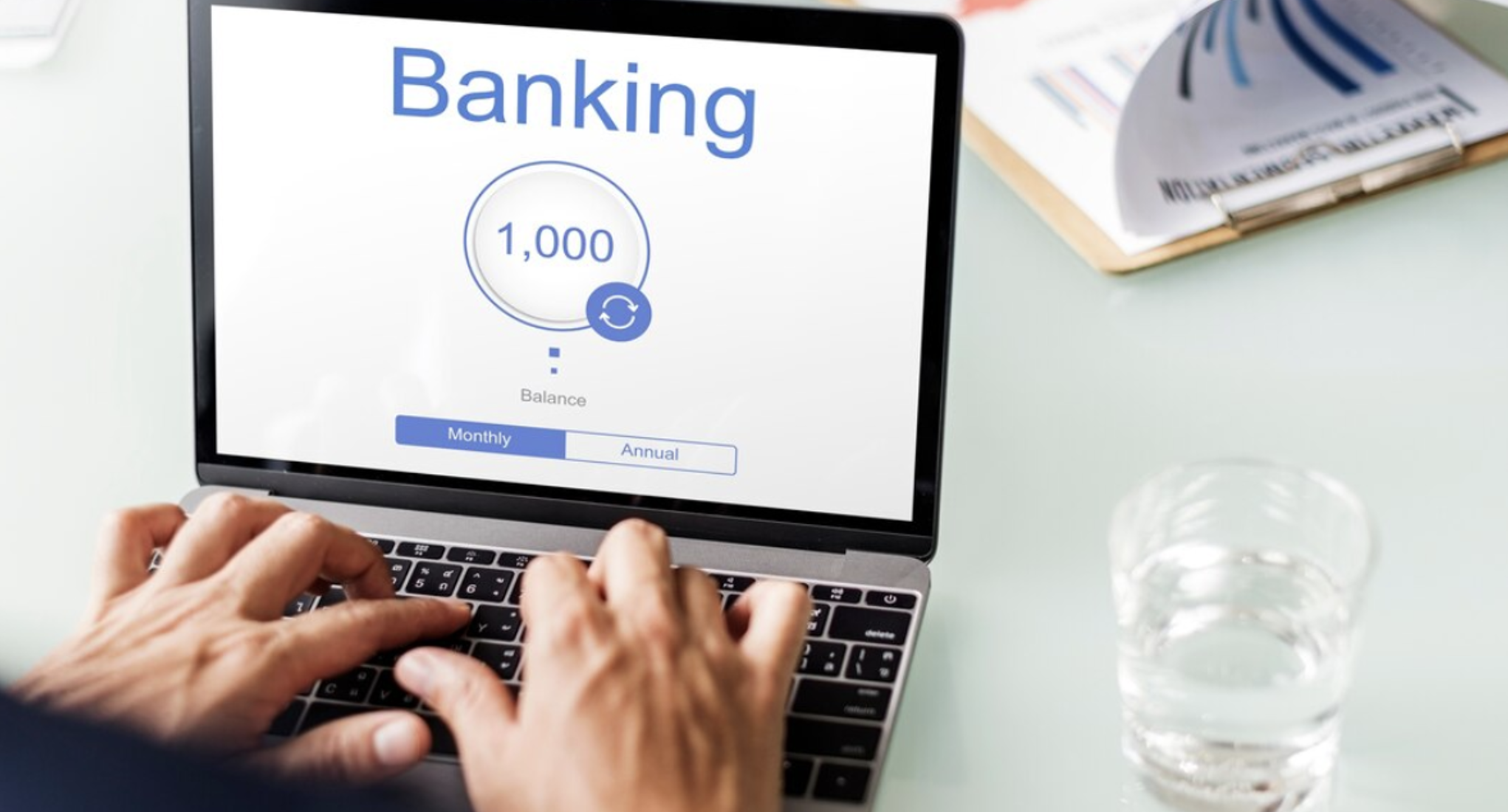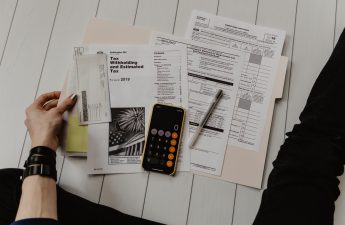We are often asked by other landlords like ourselves, “Do I need a business bank account for rental income?” For most, the answer is yes. Managing rental properties comes with its fair share of financial responsibilities, and setting up a separate bank account for your rental income can streamline your financial management processes significantly. This dedicated account serves as a crucial tool to organize your finances effectively, ensuring clarity and transparency in tracking rental income, expenses, and profits.
In this article, we’ll discuss the essential steps to establish a separate rental bank account for landlords so you can take control of your finances with confidence and ease.
Choosing the Right Bank
Start with assessing the fee structure of various banks, including monthly maintenance fees and transaction charges. Opting for a bank with minimal fees can help maximize your rental income. Additionally, evaluate the bank’s location and accessibility.
While online banking has become increasingly prevalent, proximity to a physical branch can still be advantageous for tasks like depositing cash or seeking in-person assistance.
Furthermore, prioritize banks offering robust online banking capabilities. A user-friendly online portal and mobile app can streamline account management, allowing you to monitor transactions, pay bills, and access statements conveniently.
When comparing account features, look for benefits tailored to landlords. These may include automatic categorization of rental-related transactions, the ability to set up separate sub-accounts for each property, and integration with accounting software for seamless recordkeeping.
Account Type Selection
It’s essential to understand what kind of bank account for rental property will best suit your needs. Two primary options commonly considered are checking and savings accounts.
- Checking accounts offer flexibility and accessibility, making them well-suited for day-to-day financial transactions related to your rental properties.
- Savings accounts are ideal for accumulating reserves for future expenses or unexpected repairs associated with rental properties.
Considering the dynamic nature of rental property management, a combination of both checking and savings accounts may be advisable. Utilize a checking account for day-to-day transactions and a savings account to build a financial safety net for your rental activities.
Gathering Required Documentation
Collecting the necessary documentation is a crucial step in opening a bank account, whether for business or personal use related to rental purposes. Below is a list of essential documents typically required:
- Identification: Provide valid identification documents such as a driver’s license, passport, or government-issued ID. This ensures the bank can verify your identity as the account holder.
- Proof of Address: Furnish proof of your current address, which can include utility bills, rental agreements, or official correspondence. This helps establish your residency and contact information.
- Tax Identification Number (TIN): For business accounts, you’ll need to provide your Tax Identification Number (TIN) or Employer Identification Number (EIN). This ensures compliance with tax regulations and facilitates reporting of income generated from rental properties.
- Business Documentation: If opening a business account, present relevant business documentation such as articles of incorporation, partnership agreements, or LLC operating agreements. These documents establish the legal structure of your rental business.
- Property Deeds or Leases: Include property deeds or lease agreements to demonstrate ownership or authorization to manage the rental properties. This validates your connection to the rental income deposited into the account.
- Financial Statements: Some banks may request recent financial statements or tax returns to assess your financial standing and eligibility for certain account features or benefits.
- Additional Documentation: Depending on the bank’s requirements and your specific circumstances, you may need to provide additional documentation such as business licenses, property insurance policies, or rental income projections.

The Account Opening Process
Here’s a step-by-step guide to help you through the process:
Online Application Process
- Visit the bank’s website and navigate to the section for opening a new account.
- Fill out the online application form, providing accurate information and uploading required documents as instructed.
- Review the terms and conditions carefully before submitting your application.
In-Branch Application Process
- Schedule an appointment with a representative at your chosen bank branch.
- Bring all required documentation with you to the appointment.
- Meet with the bank representative, who will guide you through the account opening process and assist with any questions you may have.
- Fill out the necessary paperwork and provide identification as requested.
Online Banking Setup
Setting up online banking for your rental property account is a convenient way to manage finances effectively. Follow these steps to maximize features beneficial for landlords:
Visit the Bank’s Website
Navigate to the bank’s website and locate the section for online banking or account login.
Register Your Account
If you’re a first-time user, you’ll need to register your account. Provide your account details, including account number and personal information, to create a username and password.
Explore Account Features
- Automatic Payments: Set up automatic payments for recurring expenses such as mortgage payments, property taxes, or utility bills. This ensures timely payments without the hassle of manual processing.
- Transaction Alerts: Enable transaction alerts to receive notifications via email or text message for specific account activities. This feature helps you stay informed about incoming rent payments, withdrawals, or suspicious transactions.
Implementing Rent Collection Systems
Implementing rent collection systems for your rental properties can streamline payment processing. To set up direct deposit for tenants, provide them with your bank account details, including routing and account numbers, and request they initiate direct deposits through their bank or payroll service.
Alternatively, consider online rent payment platforms that link directly to your new bank account. These platforms offer tenants convenient options to pay rent electronically via credit card, debit card, or bank transfer.
Choose a reputable platform that integrates seamlessly with your bank account, ensuring efficient and secure rent collection. By offering multiple payment methods and simplifying the rent collection process, you can enhance tenant satisfaction and improve cash flow management for your rental properties.
Account Management Best Practices
Effective account management is essential for landlords to stay organized and financially sound.
- Implement routine maintenance tasks such as regularly reconciling bank statements, updating expense records, and monitoring account activity to ensure accuracy and identify any discrepancies promptly.
- Utilize accounting software or spreadsheets to track rental income and expenses systematically.
- Categorize transactions by property and expense type for easy reference and tax reporting.
- Consider setting aside funds for maintenance and unexpected expenses in a separate account to avoid mixing personal and rental finances.
- Stay informed about relevant tax deductions and consult with a financial advisor or accountant for guidance.
Linking to Accounting Software
Integrating the bank account for landlords with accounting or property management software can streamline financial tracking and reporting processes. Begin by selecting compatible software that aligns with your business needs and supports bank account integration. Follow the software provider’s instructions to link your bank account securely.
Benefits of synchronization include automatic transaction categorization, real-time updates on income and expenses, and simplified reconciliation processes. This integration enhances accuracy and efficiency in financial management, enabling you to generate detailed reports for tax purposes, budgeting, and decision-making.
Rental Bank Account: Landlord Gurus Takeaway
A dedicated rental property bank account not only simplifies financial tracking and reporting but also fosters a proactive approach to managing income and expenses.
Setting up a separate bank account for landlords requires careful consideration and meticulous planning. From researching the right bank to gathering essential documentation and selecting the appropriate account type, each step plays a crucial role in ensuring efficient financial management.
Whether opening the account online or in-branch, landlords must prioritize organization and clarity to streamline processes such as rent collection, expense tracking, and tax reporting.

Disclosure: Some of the links in this post are affiliate links and Landlord Gurus may earn a commission. Our mission remains to provide valuable resources and information that helps landlords manage their rental properties efficiently and profitably. We link to these companies and their products because of their quality, not because of the commission.




